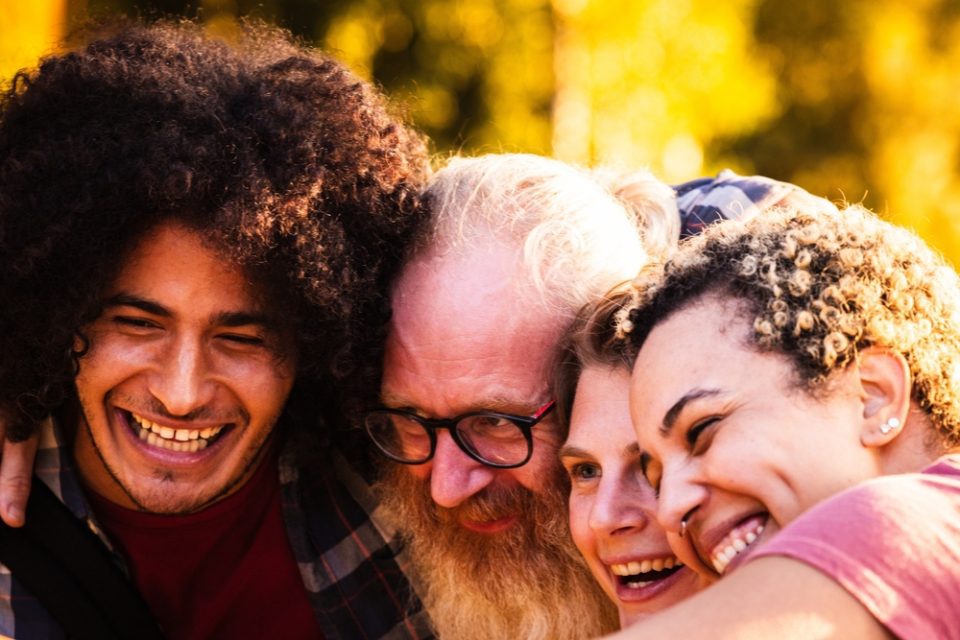New research reveals transformative benefits of cross-generational connections

The landscape of friendship continues to evolve, with intergenerational connections emerging as powerful catalysts for personal development and social understanding. These relationships, spanning different age groups and generations, create unique opportunities for learning and growth that traditional peer friendships may not provide. This article explores how these cross-generational friendships foster personal development, mental well-being, and cultural preservation, and why they are becoming more valuable in today’s fast-paced, diverse society.
Understanding cross-generational bonds
Intergenerational friendships are defined by connections between individuals from different age groups, typically spanning gaps of 10 to 20 years or more. These friendships break through traditional social boundaries, often creating bonds between people who would otherwise not interact. They are shaped by distinct historical, social, and cultural experiences, providing each participant with unique insights and perspectives.
As society becomes more interconnected, such friendships bridge generational divides and foster a deeper understanding of various life stages. Younger individuals can gain wisdom from older adults, while older individuals can stay connected with contemporary issues, trends, and technologies through their younger friends. These connections bring together perspectives that traditional friendships confined to similar age groups often miss.
Impact on personal development
Intergenerational friendships have significant implications for personal growth. Research has shown that 37% of adults maintain meaningful friendships across generational lines. These relationships are especially valuable for younger individuals, who benefit from the guidance and life experience of older friends. Older adults, on the other hand, gain a fresh perspective on the world from younger generations, learning about evolving social norms, technologies, and cultural shifts.
The benefits of such friendships are mutual. For younger people, the knowledge shared by older friends helps them navigate complex life situations, providing insights that may be overlooked in their immediate peer group. Older adults often experience rejuvenation through their connections with younger individuals, gaining a renewed sense of purpose and staying informed about current societal issues.
Mental health and well-being
The psychological benefits of intergenerational friendships go beyond simple companionship. These relationships can offer a unique space free from the pressures of societal expectations and peer judgment. Younger individuals may feel less pressure to conform to age-related norms, while older individuals may find themselves more at ease expressing themselves without the burden of expected social roles.
Intergenerational friendships often serve as supportive spaces where individuals can engage in open conversations, share personal experiences, and learn from each other’s unique perspectives. Such relationships contribute to mental well-being by offering emotional support and reducing feelings of isolation, especially among older adults who may be at risk of loneliness. These friendships foster authenticity, allowing individuals to express their true selves regardless of age.
Cultural preservation and heritage
Within diverse communities, intergenerational friendships play a crucial role in preserving cultural traditions and heritage. As people from different generations interact, they exchange stories, customs, and values that may otherwise be forgotten or overlooked. Older generations pass down cultural knowledge, traditions, and life lessons, ensuring that younger individuals can understand and appreciate their roots.
For younger people, these relationships offer an opportunity to connect with their heritage in a meaningful way, while for older individuals, it provides a sense of fulfillment in passing on the knowledge they have accumulated over the years. These friendships not only preserve cultural customs but also foster mutual respect for different backgrounds, creating a more inclusive society.
Building meaningful connections
While the benefits of intergenerational friendships are clear, building these relationships requires intentional effort. They don’t happen automatically, and both parties must be open to connecting and learning from each other. Social settings such as workplaces, community events, educational environments, and even social media platforms offer ideal opportunities for intergenerational friendships to blossom.
The key to successful cross-generational bonds lies in curiosity and respect. Both younger and older individuals should approach these friendships with an open mind, recognizing that each generation offers something valuable to the relationship. Whether it’s learning from life experiences, gaining new skills, or offering emotional support, intergenerational connections enrich both parties.
Challenges and considerations
Despite their many benefits, intergenerational friendships can sometimes face challenges. Differences in life stages, values, or communication styles may cause misunderstandings. For example, younger individuals may feel frustrated by the slower pace of conversation or the different viewpoints of older individuals, while older adults may struggle with the fast-paced nature of today’s world.
To overcome these challenges, it’s essential to approach these relationships with patience and empathy. Both generations can learn to appreciate each other’s perspectives, understanding that each has unique contributions to offer. By fostering mutual respect and open communication, these friendships can thrive and provide lasting value to both participants.
The future of intergenerational friendships
As society continues to evolve, the importance of intergenerational friendships will only grow. These bonds help bridge the gap between generations, fostering empathy, understanding, and collaboration. With increasing awareness of the challenges faced by both younger and older generations, such relationships become critical in promoting social cohesion and enhancing individual well-being.
In the workplace, educational institutions, and community settings, there is a growing recognition of the value that these cross-generational relationships bring. The sharing of knowledge, emotional support, and cultural heritage strengthens the fabric of society, creating an environment where individuals of all ages can learn from each other and grow together.
The future holds exciting possibilities for these friendships, offering opportunities for continued growth, learning, and mutual benefit. As we embrace the diversity of experiences across generations, intergenerational friendships will remain a cornerstone of our social connections, fostering a more interconnected and supportive world.
In conclusion, intergenerational friendships offer more than just companionship—they provide avenues for personal growth, mental well-being, and the preservation of cultural heritage. These relationships break down age-related barriers, bringing fresh perspectives and insights that contribute to mutual understanding. By actively fostering these connections, we create a more inclusive and supportive society where individuals of all ages can learn, grow, and thrive together.














